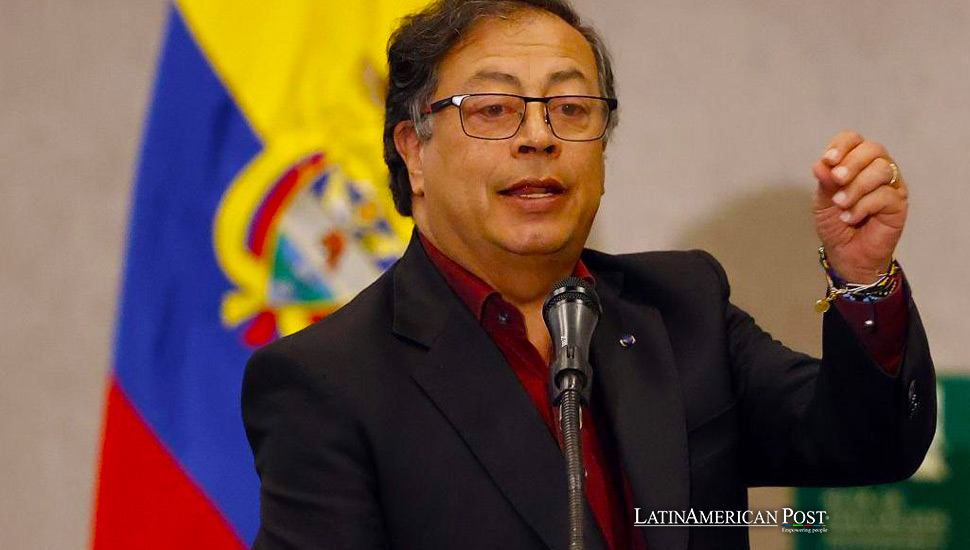Colombia in a Diplomatic Quandary Following Petro’s Israel Ultimatum

Colombian President Gustavo Petro’s threat to sever diplomatic ties with Israel over Gaza conflict compliance starkly highlights the complex interplay between international diplomacy and domestic policy, straining traditional alliances and reflecting broader Latin American political shifts.
Challenging Diplomatic Norms
Colombian President Gustavo Petro’s recent threat to break off diplomatic relations with Israel if it does not adhere to a U.N. Security Council resolution calling for a ceasefire in Gaza marks a significant pivot in international relations, particularly within the Latin American context. This move articulated through social media, underscores a growing tension between maintaining traditional diplomatic and military alliances and adhering to ideological principles and human rights advocacy. Such a stance impacts Colombia-Israel relations and resonates with broader regional dynamics, reflecting Latin America’s evolving foreign policy landscape.
Petro’s vocal criticism of Israel’s military actions in Gaza and his call for international solidarity against what he terms a “genocide” represents a departure from Colombia’s historically pragmatic foreign policy. This shift is emblematic of a broader trend in Latin America where left-leaning leaders increasingly prioritize ideological affinity and human rights in their foreign policy agendas, often leading to strained relations with traditional allies.
The reaction from Israel’s Foreign Ministry, labeling Petro a “supporter of Hamas terrorists,” escalates the diplomatic rift and brings to the fore the charged nature of international discourse on the Israeli-Palestinian conflict. Such exchanges reflect the complexities of global geopolitical alignments and the domestic pressures leaders like Petro face in aligning their foreign policy with their ideological base and human rights commitments.
Implications for National Security
This diplomatic spat also highlights the potential ramifications for Colombia’s defense capabilities, given its reliance on Israeli military technology and expertise. The deterioration of relations could jeopardize Colombia’s security infrastructure, which has historically benefited from Israeli support, especially in its long-standing battle against drug cartels and rebel groups. This predicament illustrates the delicate balance countries must navigate between ethical foreign policy stances and practical national security considerations.
Moreover, the situation with Colombia and Israel indicates a larger pattern in Latin America, where countries are reassessing their foreign relations through ideological and ethical considerations. Nations like Venezuela, Bolivia, and Nicaragua, under left-leaning governments, have also taken stances critical of Israel, aligning themselves more closely with Palestinian sympathies and distancing themselves from Western geopolitical interests.
Reevaluating Global Alliances
The Latin American shift towards more ideologically driven foreign policies raises questions about the future of regional diplomacy and its impact on global power structures. As countries like Colombia take bold stances on international issues, they redefine their own foreign policy identity and challenge the traditional dynamics of international politics, pushing for a reevaluation of alliances and strategies.
Petro’s approach, while controversial, taps into a broader debate on the role of ethics in international relations and the responsibility of nations to advocate for human rights and peace. It also tests the limits of diplomatic pressure and the efficacy of using such threats as a tool for international advocacy and change.
Also read: Colombia’s Fragile Peace: Challenges and the Road Ahead
President Petro’s threat to cut diplomatic ties with Israel if it does not comply with the U.N. ceasefire resolution in Gaza is more than a bilateral issue; it is a manifestation of the changing contours of Latin American foreign policy. This shift, characterized by a stronger emphasis on ideological and ethical considerations, has significant implications for regional and global diplomatic relations, highlighting the complex interplay between national interests, international norms, and moral imperatives in foreign affairs.





